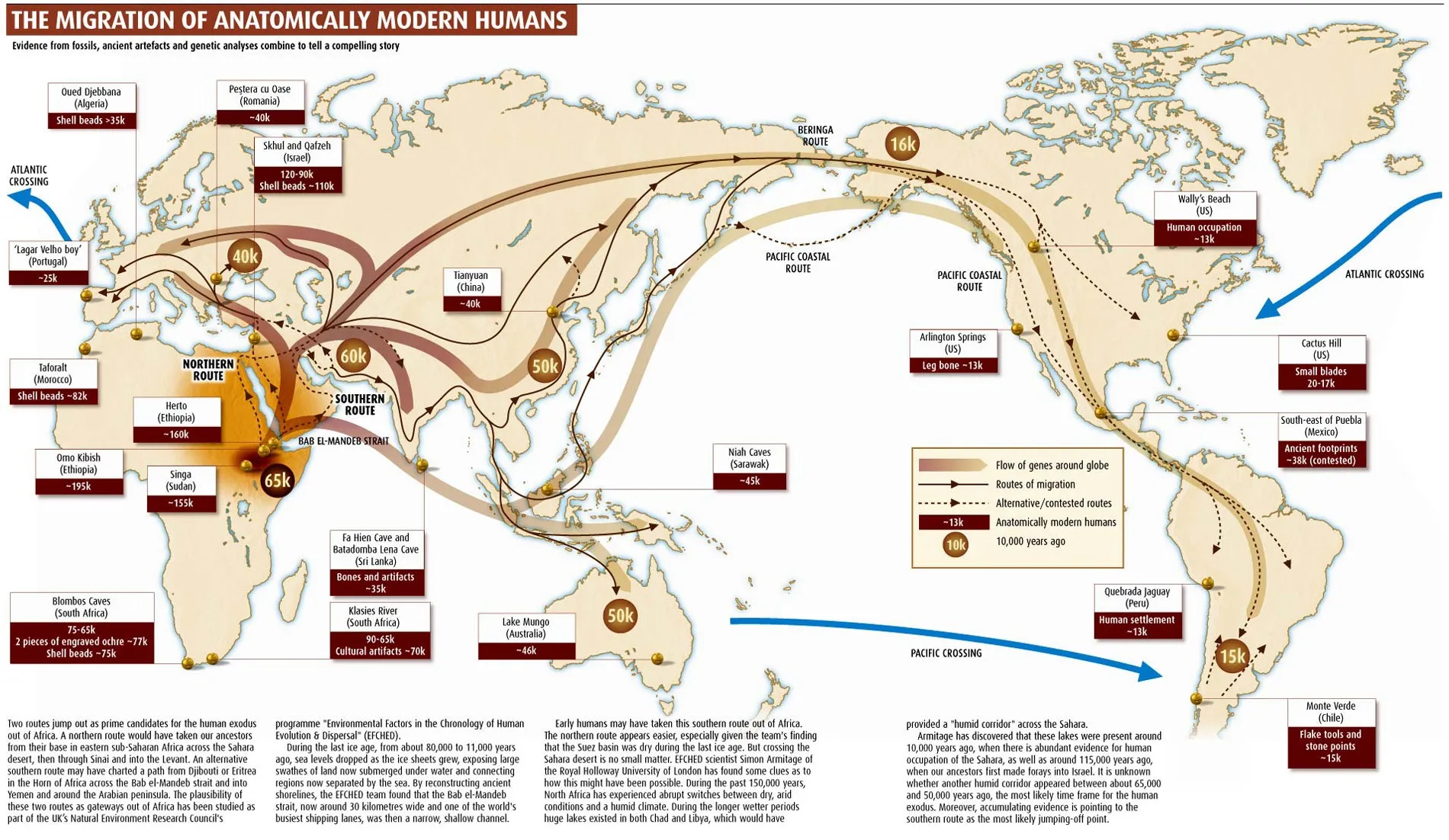I read Guns, Germs and Steel by Jared Diamond on Dec 5th, 2018
Guns, Germs and Steel is probably the most satisfying book I have read in 2018.
The book challenges the readers an interesting question: why the European settler colonized the New World with their guns and germs1, not vice versa?
The Migration of Early Humans
The Homo Sapiens originated from Africa about million years ago, — scientists has found almost all living boy and men are descendants of one African man with the analysis of Y chromosome. Our ancestors expanded to Europe and middle east no later than 500 thousands years ago, and east Asia around 1 million years ago. Thanks to Bering Straight(82km wide), the sapiens did not set foot on North America continent until 12 Ka BP in Sangamonian Stage. Until 500 A.D we settled on the Polynesian islands after shipbuilding and navigation were developed.

Credit: TranspacificProject
The Agricultural Revolution
The First Agricultural Resolution circa 10,000 BC fundamentally changed the human’s life style and social structure. The surplus food supported craftsmen, politician, and professional military. The tribes living on scourge and forage were outnumbered and outgunned by the farmers, expelled or exterminated eventually.
The Agricultural Revolution also happened in America continent, but the settlers faced a much challenging situations. There existed no wild grains, and the alternatives, corn and potato, had lower energy density and less proteins compared to the wheat. There were also fewer megafauna suitable for domestication, notably llama and turkey; since the major candidates were exterminated during the early migration due to the lack of evolutional experience.
The lack of domesticated animals setback the American settlers with many disadvantages:
- No proteins from nutritious milk, meat and eggs.2
- No animal-powered transportation
As major human infectious diseases originated from domesticated animals [[Nathan 2017]], the American settlers were never exposed to the domesticated animals to build up the immunity, which make them extremely vulnerable to the germs and viruses from the Old World.
Why not African or Chinese
The African continent extends along the latitude, that make the domesticated plant hard to propagate along sapiens’ expansion.
China had established glorious civilization thanks to the long unified country; which in turn eliminate the yearning to oversea expansion. From 1405 to 1433, Zheng He(鄭和) commanded the Ming treasure voyage to explore South East Asia and East Africa; but it was aborted as the emperor did not recognize the value of international trade. It was also worthy noting that Ming Dynasty in general disdained and undervalued the commerce. The 3% sales tax contributed roughly 10% income for the central government, thus the ruling class had little incentives for oversea expansion.
Methodology
The author also discussed the methodologies applied in this book:
- Comparative method. Since we cannot rewind the history and experiment all possible outcomes with different inputs, like save / load in Sid Meyer’s Civilization game; we need to pick the several groups relatively in the similar circumstances, and carefully study the different outcomes.
- It is relatively easy to tell the age of relics with modern Carbon-14 decay detection, but challenging to backtrack the migration. Anthropologist used ancient languages as the checkpoint to infer the migration process.
Closing Thought
History is not mere a time series database. The action we took MAY accumulate to a ripple effect we could not anticipate.